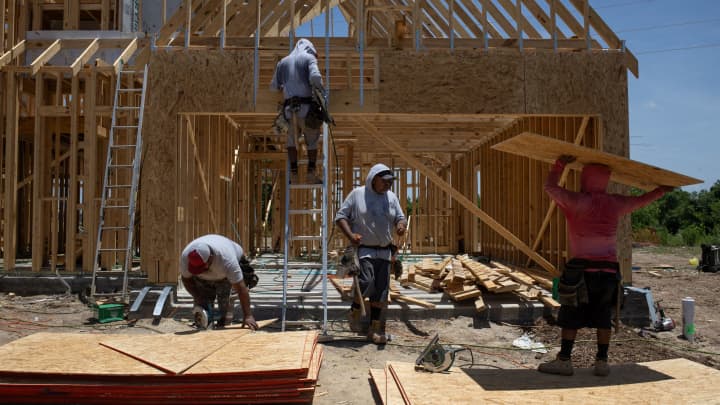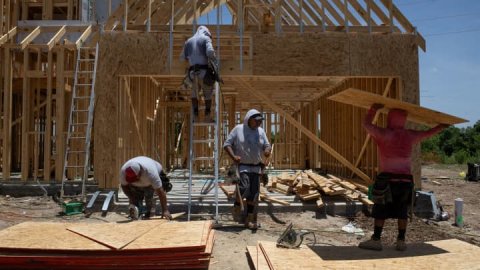
U.S. homebuilders are feeling pessimistic about their business for the first time in seven months, thanks to stubbornly high mortgage rates.
Builder confidence in the single-family housing market fell 5 points in September to 45 on the National Association of Home Builders/Wells Fargo Housing Market Index. The decrease in August. Anything below 50 is considered negative.
The index's three components all declined. Current sales conditions fell 6 points to 51, and sales expectations in the next six months also dropped 6 points to 49. Buyer traffic decreased 5 points to 30.
Builders cite weaker affordability due to higher mortgage rates. The average rate on the popular 30-year fixed mortgage since June.
As a result, builders are starting to offer more incentives again. In September, 32% of builders said they cut prices, compared with 25% in August. That's the largest share of builders reducing prices since December 2022, when 35% were doing so.
The average price cut was 6%.
"High mortgage rates are clearly taking a toll on builder confidence and consumer demand, as a growing number of buyers are electing to defer a home purchase until long-term rates move lower," said Robert Dietz, NAHB's chief economist, in a release.
A shift is also occurring among those buyers who are still in the market. The NAHB added a new question to this month's survey and found that 42% of new single-family home buyers year to date were first-time buyers. That is much higher than the historical norm of around 27%.
While builders are still benefiting from the lack of supply on the existing sales market, they are also facing hurdles other than higher interest rates.
"On the supply-side front, builders continue to grapple with shortages of construction workers, buildable lots and distribution transformers, which is further adding to housing affordability woes. Insurance cost and availability is also a growing concern for the housing sector," said NAHB Chairman Alicia Huey, a homebuilder and developer from Birmingham, Alabama.
Regionally, on a three-month moving average, sentiment in the Northeast fell 2 points to 54. In the Midwest it dropped 3 points to 42.
In the South it declined 4 points to 54, and in the West it decreased 3 points to 47.




